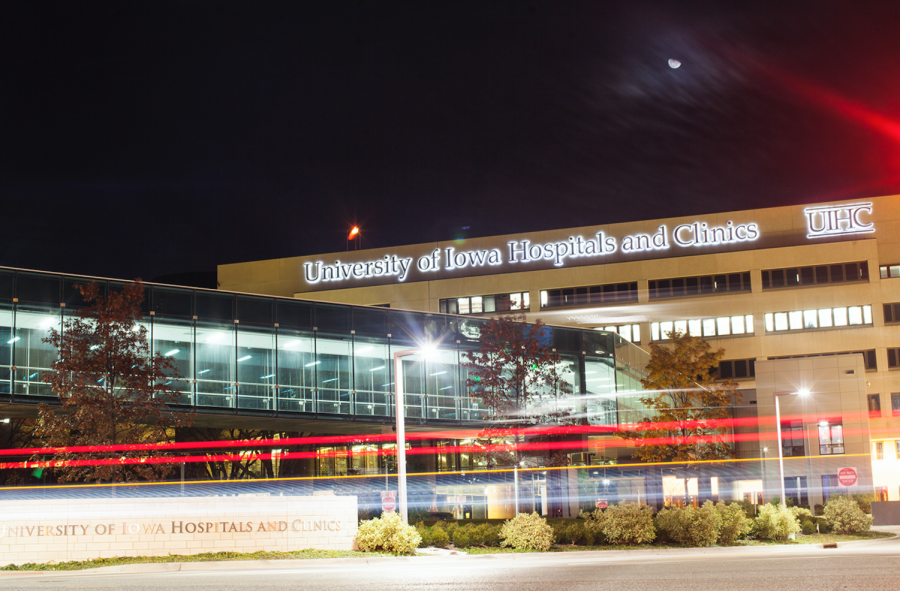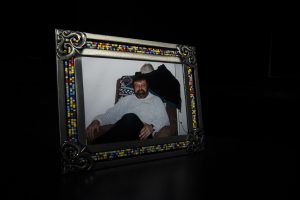Cystic-fibrosis breakthrough shows promise
Researchers at the University of Iowa and the University of Illinois teamed up to work on a possible new treatment for cystic fibrosis.
April 1, 2019
Research performed in a collaboration between the University of Iowa and the University of Illinois has led to a promising breakthrough in cystic-fibrosis treatment. While the treatment has yet to be clinically proven to be effective in humans, researchers are hopeful about the future of their work.
Cystic fibrosis is a genetic disease that causes persistent lung infections and limits an individual’s ability to breathe over time. A new treatment, if verified in future clinical trials, will reduce the frequency of lung infections in cystic-fibrosis patients.
The story began nearly 20 years ago when University of Illinois Professor Martin Burke, then a medical student working toward a Ph.D. at Harvard, met a patient battling cystic fibrosis while doing rounds in the hospital.
“I was explaining exactly what was wrong with this misfolded protein that her mutation was causing, and she stopped me during the conversation and said, ‘It sounds like you know exactly what’s wrong; why can’t you fix it?’ ” Burke said.
The patient’s question identified a major gap between the fundamental understanding of the exact molecular deficiency in cystic-fibrosis patients and how little could be done to address it in a therapeutic fashion.
Burke became excited about an idea – might small-molecules that perform protein-like functions be used in place of missing proteins — like a “molecular prosthetic”?
About the same time Burke learned in a chemistry lecture about amphotericin B, an FDA-approved antifungal medication that formed ion channels. He questioned whether amphotericin B could potentially act as a replacement for the absence/dysfunctionality of the cystic-fibrosis transmembrane conductance regulator protein in cystic-fibrosis patients.
RELATED: UI cystic-fibrosis research team awarded $11.5 million grant
“That moment in class really kind of set a spark,” Burke said. “I became fascinated by amphotericin and got really excited by the idea that maybe it could be a good starting point for trying to get a molecular prosthetic for cystic fibrosis.”
Burke launched his research on the idea in 2005. Most recently, he and his team had the opportunity to team up with UI Professor Michael Welsh to do research in his lab.
Welsh, an expert in cystic fibrosis research, opened his lab to Burke and two of his graduate students, Katrina Muraglia and Rajeev Chorghade.
Welsh’s lab is equipped with something other cystic-fibrosis research facilities don’t have — genetically selected pigs, one of the few animals that can be diagnosed with cystic fibrosis besides humans. The animals are developed in the lab to not have the cystic-fibrosis TR protein.
RELATED: University researchers battle cystic fibrosis
“In grad school, it can be difficult to feel supported when you’re working on something brand new that your lab has no previous experience in, so to work with a world leader in the field in a lab that has so many established techniques and decades of accumulated knowledge/expertise was really enabling for me to work on this project,” Muraglia said in an email to The Daily Iowan.
Bo Ram Kim, a postdoctoral associate who worked with Welsh in his lab, said that although the treatment has yet to be clinically proven to work in humans, she is hopeful it will be able to help people with all types of cystic-fibrosis mutations, as many are left with no treatment options whatsoever based on their specific type of cystic fibrosis.
“For now, we are just testing the compounds on non-cystic-fibrosis patients to make sure that it’s safe,” Kim said. “I think this has a huge potential to help a lot of cystic fibrosis patients who have no cure at all.”







